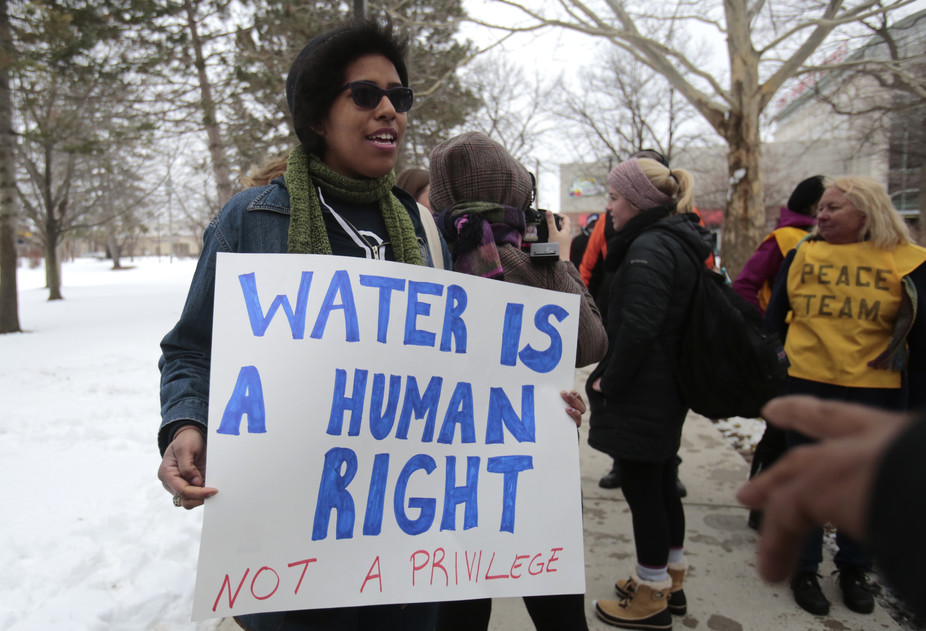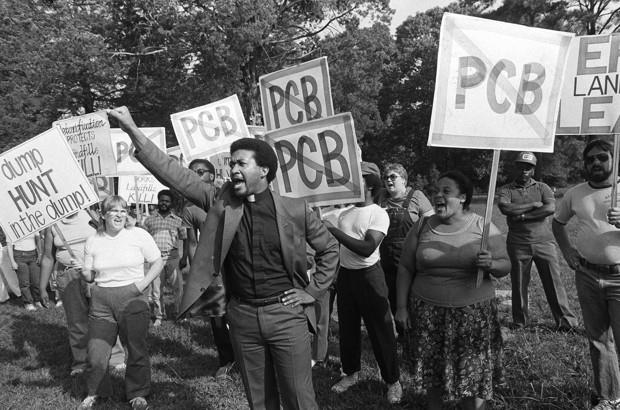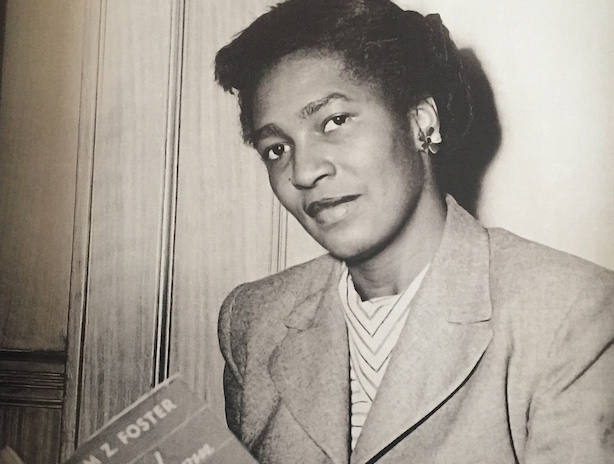The Environment as Freedom: A Decolonial Reimagining

“The environmental movement is, in my view, the greatest threat to freedom and prosperity in the modern world” said Myron Ebell of the Competitive Enterprise Institute at a gathering of climate change deniers in early 2017, rehearsing a common refrain among the right. Donald Trump, who had earlier recruited Ebell to head his Environmental Protection Agency transition team, echoed this view when he withdrew from the Paris climate accord because it “hamstrings” America’s sovereignty. According to this narrative, the environment is freedom-robbing. Only by unshackling ourselves from the concerns of the environment can we “free” ourselves and our society.
Freedom has long been a word used to justify the political agendas of the powerful and elite, as historian Eric Foner explains. Noted critic of fascism Theodor Adorno lamented in mid-20th century Europe, “people have so manipulated the concept of freedom that it finally boils down to the right of the stronger and richer to take from the weaker and poorer whatever they still have.”
Yet, the twentieth century also heard the cry of freedom in a different sense—in the Freedom Rides of the Jim Crow South, in the liberatory visions of civil rights and black power movements, and in the anti-colonial struggles of indigenous groups in the United States and Third World. These were freedom dreams committed to the idea, as Robin D.G. Kelley writes in the forward to Angela Davis’ The Meaning of Freedom and Other Difficult Dialogues, that “freedom is a process of becoming, of being able to see and understand difference within unity, and resisting the tendency to reproduce the hierarchies embedded in the world we want to change”.
Though not always framed explicitly in terms of “the environment”, radical understandings of freedom brought into focus some of the most challenging environmental injustices of the contemporary period: worker health, transit equity, urban segregation, rural impoverishment, and land degradation, to name a few. Struggles for freedom connected the dots between local struggles—which themselves were interlinked—and global formations of economic power, racism, and militarism. Building on black radical, feminist, and decolonial lineages, I want to suggest that we reclaim freedom as an analytic through which to imagine our environmental future.
Environmental Unfreedoms
For many minorities, the gap between formal freedom, and what Keeanga-Yamahtta Taylor describes as “the self-determination and self-possession inherent in actual freedom—the right to be free from oppression, the right to make determinations about your life free from duress, coercion, or threat of harm” is particularly grave in environmental spheres.
One of the most publicized examples is the 2015 lead poisoning of Flint’s water that disproportionately affected the life chances of poor black children. Lead is a dangerous toxin for the young: it impedes developmental and neurological functions. It is freedom-robbing in the starkest of terms.
But lead leached from aging pipes is only one symptom of a longer 20th century history of segregation and austerity. Other symptoms include the lack of decent schools, poor nutrition, and the steady erosion of intergenerational wealth. This is the “slow violence” that marks the intertwined nature of environmental unfreedoms.

Flint is a microcosm of the environmental unfreedoms many Americans face. Recent research shows that lead poisoning is more widespread than reported, with low-income minority children living in badly maintained rentals that are most at risk. Minorities are exposed to a higher concentration of harmful airborne toxins like NOx and waterborne toxins like nitrates than whites. Minority women continue to bear the brunt of multiply embodied, social, economic, and environmental threats.
Mainstream environmentalism has been slow and unwilling to engage this reality. The field of environmental conservation has historically been hostile to or ignored nonwhite communities, while celebrating victories by upper class whites. Mainstream representations have written out the agency of African Americans and other minorities in ecological stewardship and posthumanist ethics, practices of place-making and commoning, the insurgent production of scientific knowledge, and their deep relationships to wilderness more generally.
A further silencing is the fact that given the elite leadership of environmental organizations, many problems that afflict poor communities—non-white and white alike—are not taken seriously as “environmental.” This, despite the challenges raised by environmental justice (EJ) activists and scholars since the early 1980s. One of the crucial hurdles facing the future of the EJ movement is to push mainstream environmentalism to not tack-on justice concerns as an afterthought, but to make the abolition of inequalities spawned by bigotry, capitalism, and patriarchy a more general objective.
Anti-Racist, Feminist, and Decolonial Freedom Struggles
The long history of anti-racist freedom struggles gives insight into how to forge such a politics. As Clyde Woods recounts in Development Arrested: The Blues and Plantation Power in the Mississippi Delta, it is no coincidence that Martin Luther King, Jr. was simultaneously helping to organize the safety of Memphis’ sanitation workers while also working to resist the white supremacy of plantations in the Delta: here was a deliberate strategy exposing the relationship between the lack of labor rights for workers (indeed, their premature death), monopoly agriculture, and environmental ruin in the Delta.
Black left feminists have similarly set forth liberatory visions that connect the embodied with the global. An early effort to link scale and the intersectionality of racism, capitalism, and patriarchy that prefigured the central tenets of late twentieth century EJ came from Trinidad-born activist Claudia Jones. A journalist and member of the Communist Party of the US in the 1940s and 1950s—though not without strident criticisms of the party’s male bias—Jones migrated to Harlem in her youth and was later deported to Britain.

From an EJ perspective, what is notable about Jones’ writings was her interweaving of myriad struggles in a manner that many would regard today as the vanguard of global EJ and human rights struggles. As Carole Boyce Davies explains, a regular newspaper column Jones wrote from 1950-1953 called “Half of the World”—a title she used to assert the importance of women’s rights, literally, given their numbers in the world—focused on the lived experiences of Harlem’s residents, including segregated housing; a lack of affordable food, childcare, and jobs; and the poor health of working women. These are issues that Harlem-based EJ organization WEACT continues to be dedicated to, and is now connecting to a broader discourse of climate justice.
Crucially, Jones’ politics, like that of WEB DuBois and other black internationalists, extended beyond the predicament of black people in America to critiques of imperialism and the global color line writ large. For instance, in her essay American Imperialism and the British West Indies, she concluded that investment in oil, sugar, bauxite, and agricultural commodities by American capital was a well-disguised form of imperialism in which natural resources were seized by American monopolists and workers (including women) were exploited for cheap wages. The net result was a disruption of tropical ecosystems; heightened racism, sexism, and classism; and an eventual galvanizing of worker rights across the African diaspora that Jones was convinced was core to the global struggle for freedom.
What Would it Mean to Reimagine the Environment as Freedom?
If freedom is indeed “one of the most revolutionary ideas available to us,” as Kelley puts it, and yet we have failed to grapple with its political and analytical importance, how might we bring freedom back?
Remembering history is a crucial first step. We have seen that Flint’s crisis was decades in the making. We have seen that the land grab in the Dakota Access Pipeline is part of a longer legacy of settler colonialism. To remember history is to purposefully take stock of the magnitude of damage wrought by various forms of environmental discrimination and to devise interventions that redress their source via an abolitionist framework. It is also to decolonize what or who counts as “the environment”.
Second, among the many things that feminism has taught us, it is not only that people’s visceral experience of environmental harm matters, but also that harm is experienced across multiple issues and identities. This means that imagining a just environment must necessarily entail thinking beyond “the environment” to issues like housing, violence, and health, and identifying how global resource exploitation articulates with localized race, class, and gender politics.
Making atypical connections would enable, finally, a broad-based counternarrative. It is not environmental protection that rob us of freedom, but threats to our water, air, food, land, schools, and homes that constrain our individual and collective potential. It is time to reclaim the narrative of freedom from those who would truly rob us of freedom.
*A longer version of this essay was first published on the Social Sciences Research Council’s essay forum Items for a series titled “Just Environments.”
Copyright © AAIHS. May not be reprinted without permission.
thanks for this article but one thing I believe we should know freedom is not cheap but very costly